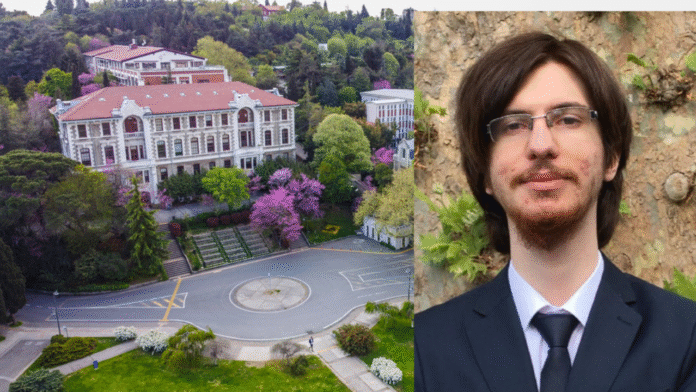A Turkish court has handed down a one-year, eight-month suspended sentence to journalist Mehmet Baran Kılıç on charges of “unlawful acquisition and dissemination of personal data” for his reports about the secretary-general of Boğaziçi University, he announced on X on Tuesday.
Kılıç said he would appeal the decision.
In a 2022 article Kılıç had revealed that at the time of his appointment, Secretary-General Hasan Fehmi Topal — who already had a bachelor’s degree from Boğaziçi University — had been registered as an undergraduate in the history department for 13 semesters and that he should have been expelled under regulations. He avoided expulsion through a student amnesty. Under the rules he would then have been required to complete a one-year English preparatory course. However, the university amended the regulation to exempt students who had studied for at least two years in a country where English is an official language. The change allowed Topal, who had a Ph.D. from a British university, to bypass the preparatory year.
Topal was initially appointed as a faculty member at the university’s Institute of Environmental Sciences despite the institute not requesting it. Just two weeks later, in February 2022, he was promoted to secretary-general.
Topal, a pro-government figure, also chaired the Boğaziçi University Alumni Association (BURA), which is considered close to the government.
Kılıç also reported that Topal used fake names to infiltrate alumni WhatsApp groups to gather information about faculty members. After the revelations, alumni associations called on him to resign.
Kılıç stressed that his reports relied on publicly available information — including news articles, public announcements, LinkedIn, academic CVs and the Council of Higher Education’s thesis database. “What I understand from this ruling,” he said, “is that writing a short biography of a public official using information available in open sources is now considered a crime.”
Boğaziçi University has been a flashpoint for protests since 2021, when President Recep Tayyip Erdoğan first appointed Melih Bulu, a former politician from the ruling Justice and Development Party (AKP), as rector in January, followed by Naci İnci in August.
Both appointments sparked protests and criticism for being undemocratic, with the university community demanding a rector chosen through a vote rather than presidential appointment. Faculty and students also objected to the appointment of figures considered to be pro-Erdoğan.
Traditionally, one of the top two candidates with the highest share of votes by the university staff was appointed rector by the president. However, that system has drastically changed over the years.
The most recent changes to the appointment of rectors came with a state of emergency decree (KHK 676) that granted the president the authority to appoint rectors without an election. Another decree in 2018 (KHK 703) reduced the requirement for rector candidates from five years as a full professor to three, broadening the pool of nominees available to the president.
Critics argue that the direct appointment of rectors by the president has curtailed academic freedom and the autonomy of universities from politics.















